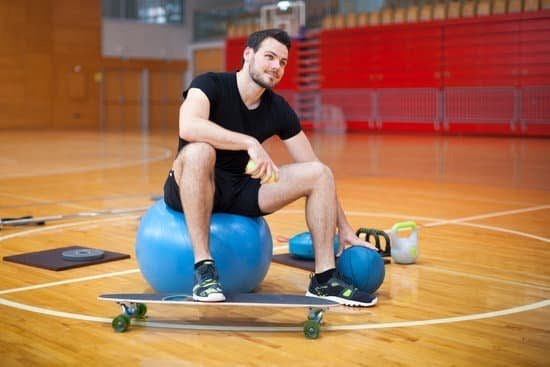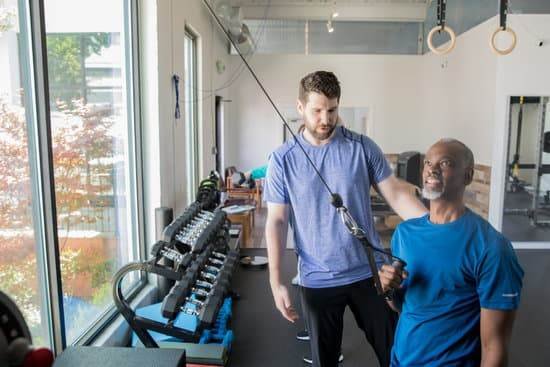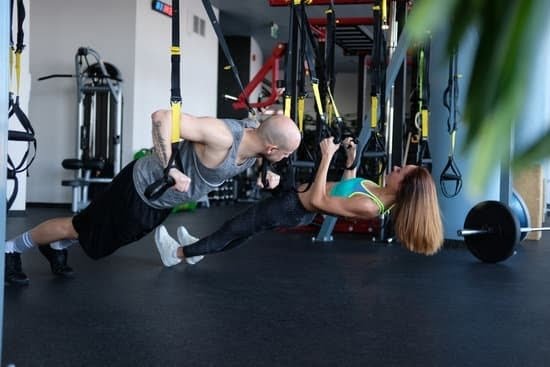Introduction
Personal training is the process of designing and delivering effective exercise plans based on an individual’s abilities, needs, and goals. These plans are tailored to the person and often include aspects such as nutrition guidance, physical fitness assessments, and a prescription for strength, cardio, and flexibility exercises.
Practice questions can help to prepare individuals for certification exams that test their knowledge in the area of personal training. The questions provide an opportunity to gain experience with both technical and conceptual elements of the profession that are essential for success in both examinations and practice. Additionally, practice questions for personal training can help a potential practitioner develop a better understanding of topics such as anatomy & physiology, kinesiology, exercise physiology & biomechanics, health & nutrition coaching, as well as safety & risk management principles. With increased knowledge comes increased confidence when it comes to performing personal training services in real-world settings. Thus, answering practice questions regularly is beneficial when trying to become certified or brush up one’s skillset in preparation for certification renewal or re-certification courses.
Benefits of Personal Training and Its Importance
Personal training not only helps individuals reach their health and fitness goals, but it also offers a range of other benefits. An experienced and knowledgeable personal trainer can help you discover new exercises, increase your knowledge about nutrition, provide valuable motivation and accountability, and help you avoid injuries. With a tailored workout plan created for your individual needs, you can achieve faster results than with solo exercise. Personal trainers can help by pushing you when you are too tired or don’t feel like working out, thus avoiding plateaus in progress. The focus on proper form when doing exercises reduces the chance of injury and providing feedback on how to correctly do movements with correct form help reduce injury risk further. Having someone who is knowledgeable about nutrition guide your meal planning for results creates healthier eating habits which may lead to losing or gaining weight as desired. Personal trainers offer unlimited support and mentorship as well as custom programs that are perfect for individuals of all levels; exercising becomes more enjoyable due to personalized sessions that yield better results than trying it alone. Furthermore, having a personal trainer encourages regular activity because seeing them on a prearranged schedule reinforces commitment to the program, making it easier to stay motivated over time.
Common Types of Personal Training Practice Questions
1. What is your approach to setting fitness goals?
2. What methods do you use to measure and track progress for clients?
3. How do you develop customized fitness plans for clients and adapt them as needed?
4. How would you motivate a client who struggles with motivation?
5. What criteria do you use when creating an exercise plan for a specific client population (for example, seniors or athletes)?
6. What strategies have you implemented in the past to promote injury prevention in the gym setting?
7. What role does nutrition play in personal training, and how do you advise clients on their diets?
8. What safety measures do you take before and during each session, including proper spotting techniques and equipment maintenance?
9. How do you approach clients with specialized needs such as postural imbalances or other injuries?
10.As a trainer, how will ensure documentations such as health history forms or assessments are updated regularly and properly maintained?
Strategies for Answering Personal Training Practice Questions
When preparing to take the Personal Training certification exam, it is important to review practice questions. This will help ensure you understand the material being tested and also build your confidence when taking the actual exam. When practicing with personal training practice questions here are some strategies to keep in mind:
1) Read All Answers Before Choosing: It is important to read each answer before selecting one even if you think you already know what the answer is. This tactic allows you to ensure that you are selecting the most accurate answer.
2) Eliminate Wrong Answers: Once you have read all the answers, attempt to eliminate wrong answers from the selection. This will help make choosing an answer easier as there are fewer options.
3) Read Questions Carefully: Make sure to read through each question carefully as there may be certain details presented that could help you determine which answer is correct. It also helps when trying to eliminate incorrect answers from a selection of choices.
4) Analyze Situations: Many of the practice tests include situational questions where you must analyze a given scenario and decide on how you would advise a client or handle a situation based on what was presented in the text. Use your trained judgment for these types of questions as opposed to relying solely on multiple choice answers as shown in other types of questions.
5) Take Notes While Practicing: Taking notes while going through practice tests can be helpful if returned back to at a later time if further studying needs to be done in areas where you had difficulty understanding or remembering information conveyed in questions or answers.
Examples of Personal Training Practice Questions and Answers
Q: What is functional training?
A: Functional training is a form of exercise that emphasizes movements based on everyday activities that are meant to mimic real-life scenarios. Functional exercises typically combine multiple muscle groups which help practitioners strengthen their bodies while developing better overall coordination. Examples include squats, planks, deadlifts, and lunges. These exercises often use unconventional forms of equipment such as kettlebells, sandbags, medicine balls, resistance bands, and even gym machines. By practicing functional training regularly, practitioners strive to improve mobility, stability, balance, strength, agility and other components of physical fitness.
Tips for Maximizing Benefits from Personal Training Practice Questions
Personal training practice questions can be an invaluable way to increase your understanding of the material. Since personal trainers provide specialized instruction, it is important to use the practice questions provided by them to ensure you are getting the best out of their expertise. Here are some tips for maximizing benefits from personal training practice questions:
• Read through the material first and make sure you’re comfortable with the fundamentals before attempting any practice question. All too often, individuals jump into answering a question before they fully understand what it requires them to do. This can result in wasted time and confusion.
• When answering a personal training practice question, take your time! Rushing through a practice question will not only lead to mistakes but can also impede your learning of the topic at hand. Try breaking down each part of the problem one step at a time and think about how each step logically fits together; this will help you develop a better understanding of the process.
• Once all relevant aspects of the personal training practice question have been worked out, go back over all aspects – review any notes made along the way and double check any calculations. A great way to increase confidence in your answer is by checking results with those obtained when using alternative methods or equations for similar problems.
• If you are unsure about any part of a particular problem, don’t be afraid to reach out for help from your trainer or colleagues who have already mastered that particular area. There is no shame in learning by asking someone more experienced than yourself; after all, this is why many people look towards personal trainers for instruction!
In sum, practice questions can provide an excellent opportunity to test your knowledge while deepening your skillset – making use of these opportunities with care and diligence will yield great rewards!
Conclusion
By taking time to complete personal training practice questions, you can become familiar with the types of information that may appear on tests, sharpen your problem-solving skills, and identify any areas where you need additional study. As a result, all of this extra effort will pay off by increasing the chances of success on exams or other tests. Additionally, by testing yourself on a frequent basis, you can make sure that knowledge acquired through intensive studying is retained in memory over time. Ultimately, investing in time and effort to understand and practice sample questions from personal training courses will prove to be invaluable when it comes to doing well in exams or demonstrating proficiency in your chosen field.

Passionate about providing useful information to anyone with an interest in the field of Personal Training, I strive to pass on to our readers quality information and to answer any questions about Personal Trainers, the work they do and how to become one.





